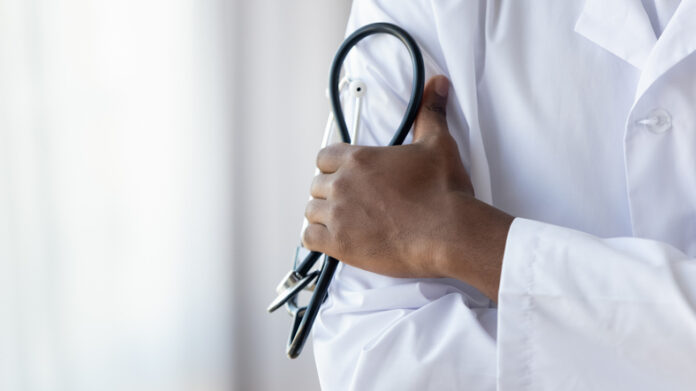With unemployment reaching historic levels, state lawmakers have been eager to reopen their economies from the unprecedented shutdowns created by the coronavirus pandemic.
But media hype and misinformation, unrealistic goal setting, and political opportunism have made reopening unnecessarily difficult, said members of The Heartland Institute’s legislative forum, who reached out to the institute for guidance. In just over a week, Heartland, which co-publishes Health Care News, delivered a paper titled “COVID-19 Response/Return to Normal: Getting Our States Back to Work Quickly and Safely.”
“Our hope was to have a document that aggregated the best ideas for how state lawmakers could pursue free-market ideas during and after the pandemic,” said Cameron Sholty, director of government relations at Heartland.
“Lawmakers have been interested in safety, but not at the cost of austerity,” said report author AnneMarie Schieber, managing editor of Health Care News. “We wanted to provide guidelines because benchmarks may or may not be based on complete data.”
‘Define What Is Essential’
The Heartland Institute relied on advice from several of its policy advisors who are physicians, some with law degrees, who have served in advisory capacities on health care policy. The panel then participated in a one-hour webinar “town hall” discussing the guidelines in the paper and fielding questions from lawmakers.
A prominent line of inquiry pertained to the length of the shutdowns and their scope.
“One of the things that seems to have been ignored is this definition of ‘essential’,” said Marilyn Singleton, M.D., J.D., in the webinar. “We have to define what is essential to life, and one of these things is the negative effect of unemployment and the negative effect of keeping people in their homes. Domestic violence and child abuse are up; alcohol sales are up. Were these things even considered?”
Singleton says a well-documented statistic shows every 10 percent increase in unemployment results in a 1.2 percent increase in mortality, on average. Children in unstable homes are missing the support they get in school and from neighbors, and people with substance abuse disorders are missing assistance from support efforts such as group recovery sessions that have been cancelled, Singleton told the audience.
Non-COVID Patients Suffer
Jeffrey Singer, M.D., a surgeon on the panel and a senior fellow with the Cato Institute, said the shutdowns have caused much harm to people in need of elective surgery.
“Elective surgery is oftentimes thought by people as unnecessary,” said Singer. “But what it means it that it has to be planned.” Delays in diagnosis of possible cancers, surgical intervention, and treating hernias and gall bladders and other nonmalignant disorders are certainly serious, Singer told the audience. “Very important health care issues are not being addressed,” said Singer.
Panelists said it has been common practice for hospitals to ask surgeons to be judicious about scheduling procedures during deadly flu seasons, instead of having the government decide for them.
“We were able to make our decisions on what can wait a few weeks and what can be done sooner,” Singer said.
Chad Savage, M.D., an internist on the panel, said medical professionals have expressed concerns about heart patients not getting in to see a physician.
“There is a belief that there have been people sitting at home who could be having mild heart attacks,” said Savage. “Those instances could lead to heart failure later on.”
Smart Testing
Panelist Roger Klein, M.D., J.D., who has a background in molecular diagnostics, said it is important for states to recognize the limitations of testing. Klein told the audience there is plenty of capacity for diagnostic testing even though there have been supply chain disruptions for swabs and the chemical agents used to process tests.
Until more testing is available, testing requirements should be limited to health care workers and individuals exhibiting symptoms of COVID-19, said Klein. Other panelists agreed, also saying it is important to remember diagnostic testing is only a snapshot in time.
“The notion that we will test everyone in the United States is completely unrealistic and unnecessary,” Klein told the audience.
Revision with Real Data
The response to the paper and webinar has been positive, says Sholty. Lawmakers from states such as New Hampshire, Tennessee, Wyoming, and North Dakota thanked The Heartland Institute for the study and asked for the link to the recorded webinar.
“We are going to update our paper against parameters many of the states have outlined for reopening and tailoring specific ‘next steps’ for states still closed,” said Sholty.
Ashley Bateman (bateman.ae@googlemail.com) writes from Alexandria, Virginia.
Internet Info:
AnneMarie Schieber, “COVID-19 Response/Return to Normal: Getting Our States Back to Work Quickly and Safely” The Heartland Institute, April 23, 2020: https://www.heartland.org/publications-resources/publications/return-to-normal-getting-our-states-back-to-work-quickly-and-safely



















